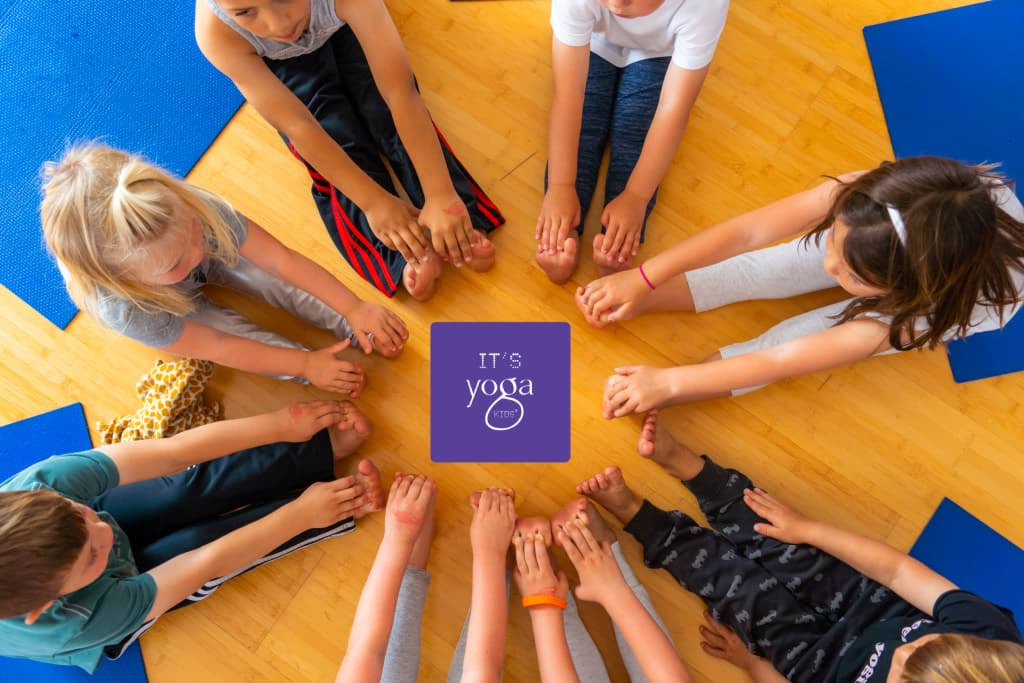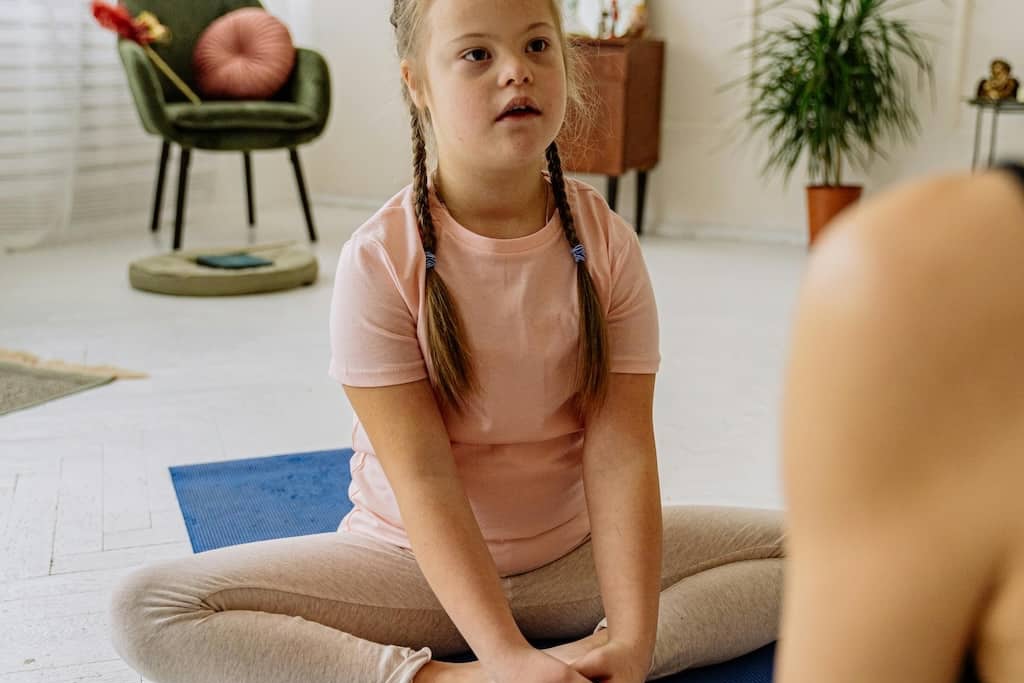
Press PLAY to listen to this post.
April 5, 2025, marks a special day: Love Our Children Day—a beautiful reminder to cherish, nurture, and celebrate the incredible young souls in our lives. This year, let’s embrace this day with the transformative power of kids yoga, a practice that inspires love, kindness, and connection.
Yoga isn’t just about physical poses; it’s a journey toward emotional, mental, and social well-being. For children, yoga becomes an empowering tool that boosts their confidence, helps them manage stress, and encourages mindfulness. On Love Our Children Day, we honor the importance of creating spaces for them to thrive.
Whether it’s playful poses like downward dog and tree pose or calming breathing exercises, kids yoga is a celebration of health, happiness, and creativity. It’s a moment for children to connect with their bodies and hearts—and for families and communities to connect with each other.
Today, let’s practice kindness together through movement and mindfulness. Let’s fill the air with giggles during a yoga class, foster strength and resilience through child-centered activities, and remind our children that they are loved, seen, and cherished.
As we stretch, breathe, and grow together, we also sow the seeds for a brighter, more compassionate future—because every child deserves to feel their unique light and shine bright.
Happy Love Our Children Day, and Namaste with hugs and High 5's to all!

Press PLAY to listen to this post.
March is Self-Harm Awareness Month, a time to raise awareness about self-injury and support those who struggle with it. According to the Centers for Disease Control and Prevention, up to 30% of teenage girls and 10% of boys have intentionally hurt themselves. The rates of self-harm have increased significantly over the past decade, especially among girls aged 10-14.
Yoga can be a powerful tool in helping teens manage their emotions and reduce self-harm urges. By practicing yoga, teens learn mindfulness, which helps them stay present and aware of their emotions without acting on them impulsively. Yoga also promotes physical well-being, providing a healthy outlet for stress and negative emotions. The principles of non-violence (ahimsa) and self-compassion in yoga encourage teens to treat themselves with kindness and respect.
Incorporating yoga into a teen's routine can create a sense of control and empowerment, reducing the need to self-harm as a coping mechanism. By creating a supportive and inclusive environment, yoga can help teens build resilience and develop healthier ways to manage their emotions.
IYK® Teens meet in person and online on Sundays at 10:45am PT. Register your teen here.

Press PLAY to listen to this post.
March is Developmental Disabilities Month, a time to raise awareness and celebrate the unique abilities and contributions of individuals with developmental disabilities. Kids yoga is an excellent tool to support children with developmental disabilities, helping them to thrive both physically and emotionally.
Benefits of Kids Yoga for Developmental Disabilities
- Improves Motor Skills: Yoga helps children develop fine and gross motor skills through various poses and movements. This can be especially beneficial for children with developmental disabilities, as it enhances their coordination, balance, and overall physical abilities.
- Enhances Focus and Concentration: The practice of yoga involves mindfulness and concentration. For children with developmental disabilities, yoga can help improve attention spans and reduce hyperactivity, making it easier for them to stay focused and calm.
- Boosts Confidence and Self-Esteem: Yoga encourages self-awareness and self-acceptance. By mastering poses and achieving personal goals, children build confidence and self-esteem. This sense of accomplishment is crucial for their emotional well-being.
- Promotes Relaxation and Stress Relief: Yoga includes breathing exercises and relaxation techniques that help children manage stress and anxiety. These practices can create a calming effect, reducing tension and promoting a sense of tranquility.
- Encourages Social Interaction: Yoga classes provide a supportive and inclusive environment where children can interact with their peers. Partner poses and group activities foster teamwork, communication, and social skills, helping children with developmental disabilities feel more connected and accepted.
Creating an Inclusive Yoga Practice
When teaching yoga to children with developmental disabilities, it's essential to adapt the practice to meet their individual needs. This might include using visual aids, offering extra support, and creating a structured and predictable routine. By tailoring the practice, we can ensure that every child experiences the benefits of yoga in a way that suits them best.
Kids yoga is a powerful and inclusive practice that can make a significant difference in the lives of children with developmental disabilities. By celebrating Developmental Disabilities Month with yoga, we can promote physical and emotional well-being, foster a sense of community, and empower children to reach their full potential.

Press PLAY to listen to this post.
As the days grow longer and the world awakens with the vibrant energy of spring, there's no better time to introduce children to the transformative power of yoga. The Spring Equinox, with its perfect balance of day and night, symbolizes new beginnings and growth, making it an ideal time to nurture young minds and bodies through yoga.
1. Embracing Growth and Balance
Just as plants begin to sprout and flowers bloom, kids can experience their own growth and transformation with yoga. This practice encourages physical development by improving strength, flexibility, and coordination. Through playful poses and mindful movements, children can enhance their motor skills and develop a strong foundation for a healthy, active lifestyle.
2. Cultivating Mindfulness and Focus
Yoga isn't just about physical growth—it's also a powerful tool for mental and emotional development. By practicing yoga, children learn to be present and mindful, helping them to focus better and manage their emotions. These skills are essential for navigating the challenges of school and daily life, fostering resilience and emotional intelligence.
3. Connecting with Nature
The Spring Equinox is a wonderful opportunity to teach kids about the beauty and balance of nature. Outdoor yoga sessions can help children connect with the natural world, appreciating the changing seasons and the renewal that spring brings. This connection fosters a sense of wonder and respect for the environment, encouraging kids to become mindful stewards of the earth.
4. Building a Supportive Community
Yoga creates a sense of community and inclusion, bringing children together in a supportive and nurturing environment. Partner poses and group activities promote teamwork and cooperation, helping kids build strong social bonds. These positive interactions contribute to a sense of belonging and self-confidence.
As we celebrate the Spring Equinox, let's embrace the season of growth and renewal by incorporating yoga into our children's lives. This practice not only supports their physical, mental, and emotional development but also instills values of mindfulness, balance, and connection with nature. By nurturing these qualities, we can help our children flourish and grow into happy, healthy individuals.
